The Banat village Asenovo near the town of Nikopol on the Danube has gained fame as a culinary destination, thanks to Maria Ivanova, secretary at the local chitalishte (community culture club) and indefatigable organizer of all kinds of initiatives aimed at preserving Banat culture. For example, she organizes a festival called “Banat gastronomical delights – the traditions of my village”, bringing together chefs from all corners of Bulgaria every year. The food she prepares with her own hands, following the old Banat recipes, has won many prizes at various events in Bulgaria and in other countries.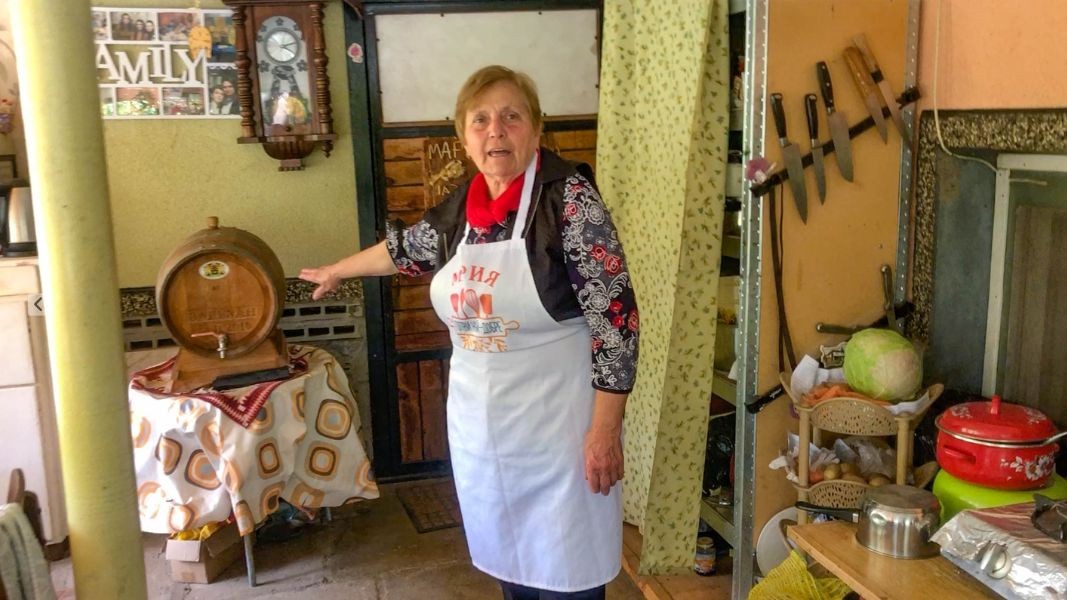
Who are the Banat Bulgarians? Find out more:
As the fame of Asenovo’s cuisine spreads, more and more tourists have been coming to the village – mostly foreigners, organized by travel agencies from Sofia. And Maria welcomes them with Banat gastronomical delights. But she also tells her guests about the culture and the history of her ancestors.
“Our Banat Bulgarians came back to Asenovo after living in the Austro-Hungarian empire for more than 200 years, having fled after the 1688 Chiprovtsi uprising,” Maria says. “But living in Europe has made their cuisine, their traditional costumes different. The food, the pastry, the smoked meat have set Asenovo apart from traditional Bulgarian cuisine. For example, at Easter people here make mottled kozunak (sweet Easter bread) out of white and red dough. Once, the old women said the red was like the blood of Jesus, and the white – like his body,” Maria explains. 
In the garden of her house in Asenovo, Maria lays out a long table laden with all kinds of goodies. The tourists come here to spend time chatting in the open air. And Maria is an inexhaustible fountain of recipes and stories:
“We welcome groups from the UK, Australia, Romania, Hungary, Greece… And of course, the food we offer them is invariably traditional,” Maria Ivanova says. “Many say they love the galushki - eggs and salt, boiled in salted broth, then strained, with paprika added, and served hot. But we make them together with the guests. Or we make the traditional salankareva pita together, made with ammonium bicarbonate, and with different kinds of fruit – grated apple, quince, or plum jam, for example.”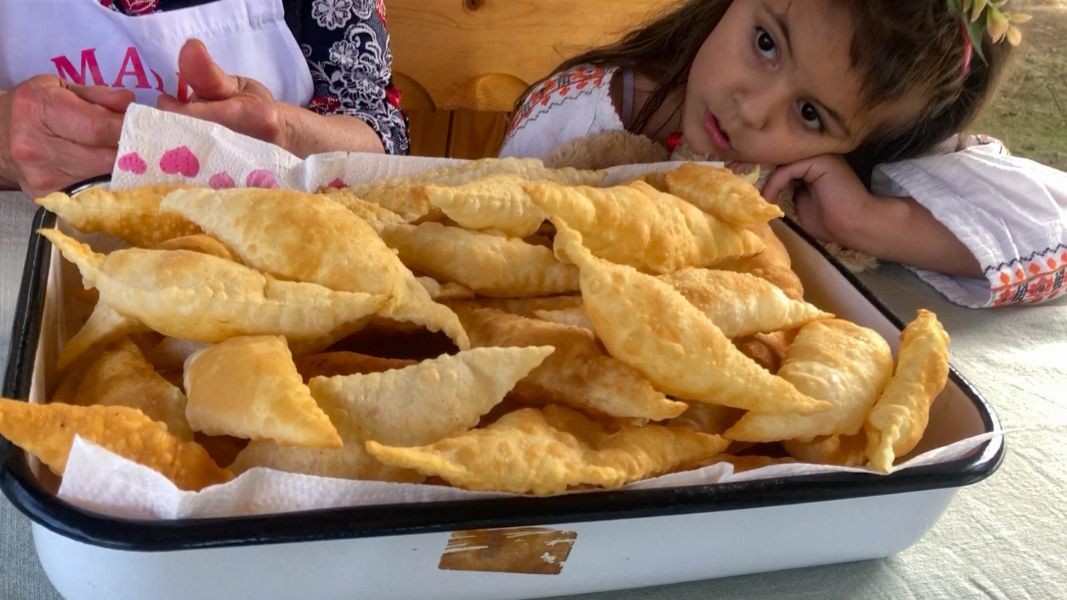
Treski is another recipe that is tasty and easy to make – dough mixed with one egg, some water, salt and vinegar, with two tablespoons of rakia so the oil won’t get absorbed into the dough, Maria explains. Potatoes, pork and lard, peppers and paprika take pride of place in Banat cuisine. 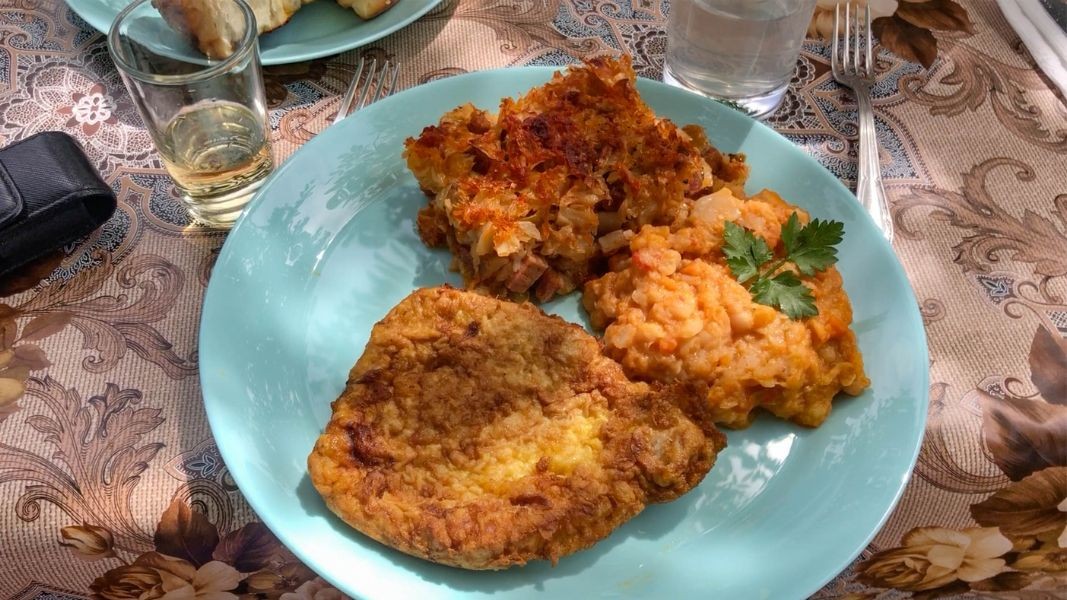
One very popular recipe is known as dripavi (ragged) pershore – chopped cabbage with smoked meat and salo, and a little bit of rice for soaking up the water from the cabbage while it is simmering, and a pinch of paprika. Smoked kulbusu is one more famed Banat delicacy – it is a species of pork sausage with different kinds of spices.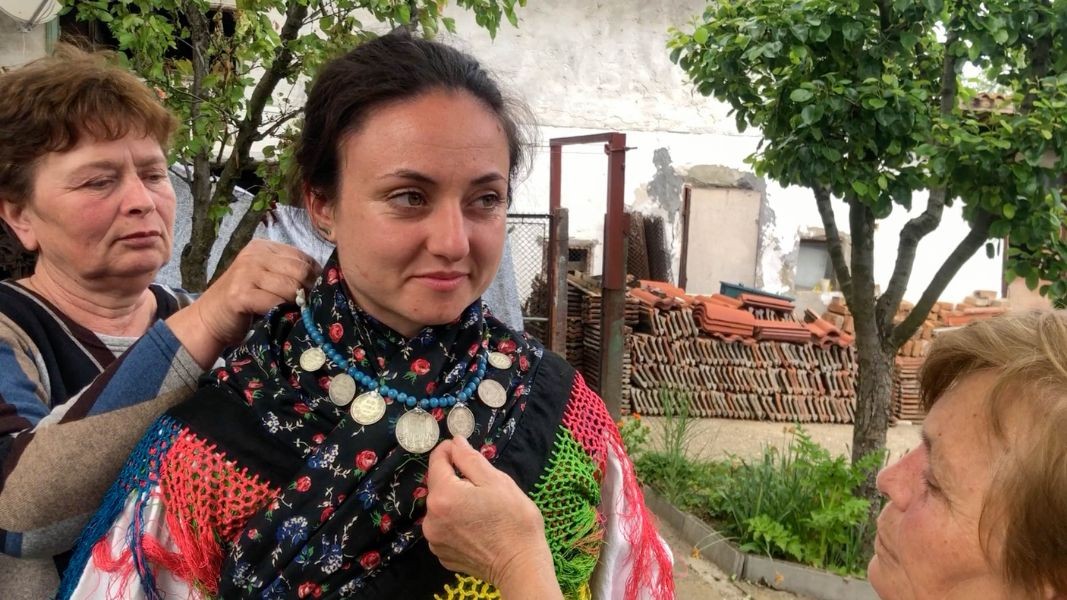
At Maria’s home, tourists also get to know the typical Banat folk costumes and can even try them on for a selfie. The typical women’s costumes from Asenovo are very ornamental, with big headscarves worn in specific ways. 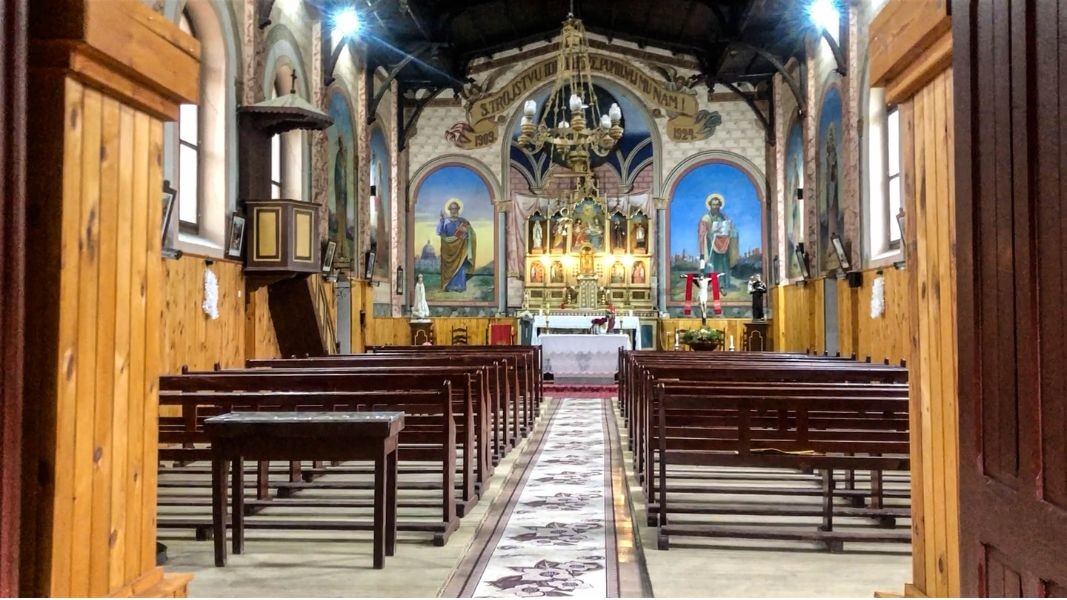
Finally, the guests can pay a visit to the Holy Trinity catholic church where a copy is kept of the icon of Holy Mother of God Chiprovska, which will be 100 years old next year.
Translated from the Bulgarian and posted by Milena Daynova
Photos: Veneta Nikolova
On 25 January 1935, Tsar Boris III signed the decree establishing the Bulgarian National Radio. The document, which officially marked the beginning of "Radio Sofia", as the Bulgarian National Radio (BNR) was then called, made radio broadcasting in Bulgaria..
The Federation of European Carnival Cities has declared Pernik a global center of masquerade traditions. 16 years ago, Prenik was named the European Capital of Sourvakar and Mummer Traditions, and nearly 10 years ago, the Surva festival was..
Bulgaria ranks last among EU Member States in terms of life satisfaction. This is according to Eurostat data for 2023 published today . With an average level of the Community indicator of 7.3 points out of 10, Bulgaria scores 5.9. Finland tops the..
On 25 January 1935, Tsar Boris III signed the decree establishing the Bulgarian National Radio. The document, which officially marked the beginning of..
The Federation of European Carnival Cities has declared Pernik a global center of masquerade traditions. 16 years ago, Prenik was named the European..

+359 2 9336 661
